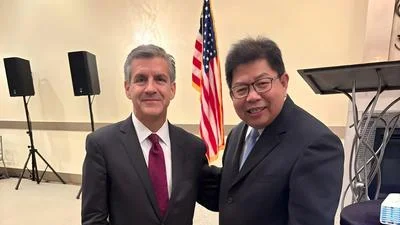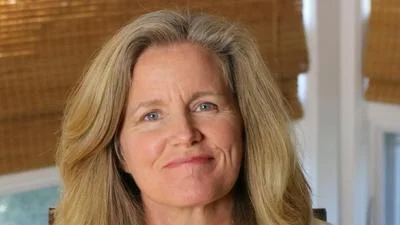Illinois state Rep. David Olsen (R-Downers Grove) last week signed on as a chief co-sponsor of House Joint Resolution Constitutional Amendment 60, a proposed constitutional amendment that would give citizens a voice in the redistricting process.
After the Illinois Supreme Court upheld a lower court's ruling that the Independent Maps Amendment was unconstitutional, state Rep. Mike Fortner (R-West Chicago) filed HJRCA 60. The proposed constitutional amendment addresses the higher court's concerns that led to the 4-3 decision that kept the citizen-led amendment off the November ballot.
"In a true democracy, citizens choose their lawmakers; not the other way around,” Olsen said. “The people of Illinois want a chance to vote for this type of reform, and so far they have been denied that opportunity. I believe HJRCA 60 accomplishes that goal in a way that would withstand a Constitutionality challenge.”
The Independent Maps Amendment was the third attempt to wrest control of the district map-making process from the legislature. While nearly 600,000 signatures were gathered and certified by the State Elections Board, the initiative was challenged in court by a group called People's Map and attorney Michael Kaspar. Supporters of the maps amendment blamed House Speaker Mike Madigan (D-Chicago) for the lawsuit. Kaspar is the general counsel for the state Democratic Party, which Madigan chairs.
The Cook County Circuit Court ruled the amendment was unconstitutional. The judge upheld Kaspar's contention that the amendment added duties to the auditor general's office and state supreme court. She also ruled that the new duties did not fall within the definition of structural and procedural changes as required by the Illinois Constitution.
Although the decision was appealed to the state Supreme Court, it was ultimately upheld by a 4-3 ruling that fell along party lines. The four Democratic judges prevailed in keeping the amendment off the November ballot.
Fortner designed HJRCA 60 to address the issues that kept the Independent Maps Amendment off the ballot.
"Unlike the Independent Map Amendment, my proposal stays confined to changes in the legislative article of the Illinois Constitution," Fortner said. "The secretary of state currently acts to break a deadlock, and I keep the secretary in substantially the same role. I also leave the roles of the attorney general and Supreme Court as they are in the current redistricting process."
The majority party currently controls the map-making process. Drawing the district maps is tightly controlled by Madigan and used to protect Democratic incumbents and discourage challengers.
HJRCA 60 would change the function of the non-partisan commission defined in the constitution. The commission's duties would change from drawing the maps to ranking draft maps submitted by citizens. The proposed maps would incorporate the constitutional requirements as directed by the commission, including designing district boundaries to ensure that the districts were compact, relatively equal in population, incorporate minority representation and promote competition.
The commission would score the draft maps according to a predetermined rubric and present the top three to the General Assembly for a final decision. The lawmakers would not be able to change the maps. If legislators are unable to reach a consensus, the secretary of state would certify the map with the highest score.
If implemented, the amendment would allow citizens to redraw or revise their district borders in 2021. These changes would be in effect for the 2022 election.
“This bill gives map-making power to the people and takes it out of the hands of politicians,” Olsen said. “I believe this legislation responds appropriately to the issues identified by our state’s highest court, and offers a much fairer process. Most importantly, it should end partisan control of map-making once and for all.”






 Alerts Sign-up
Alerts Sign-up